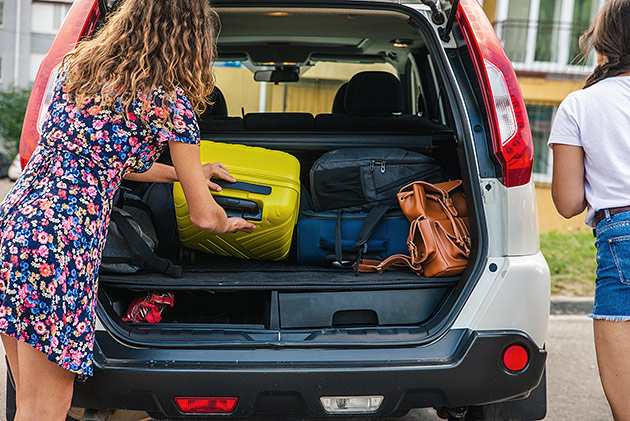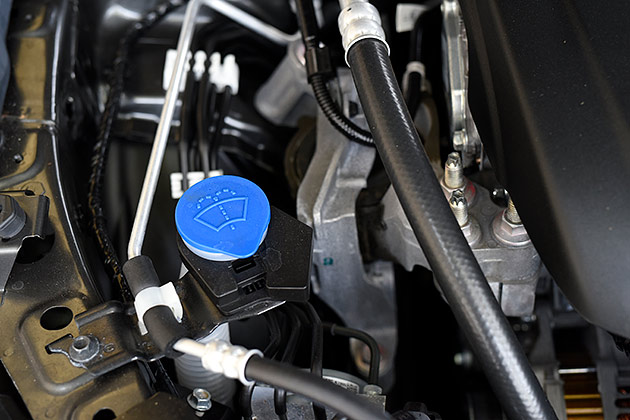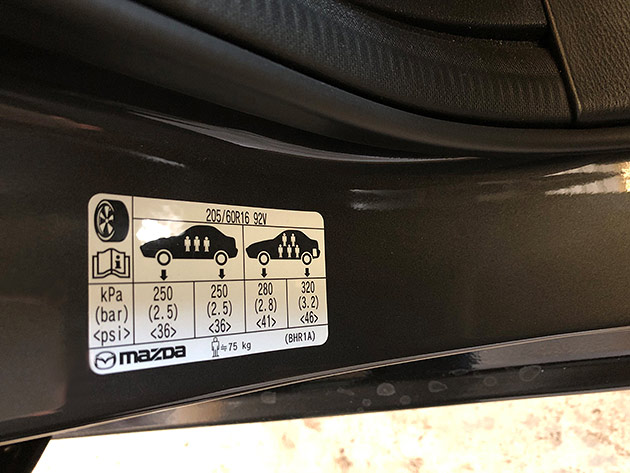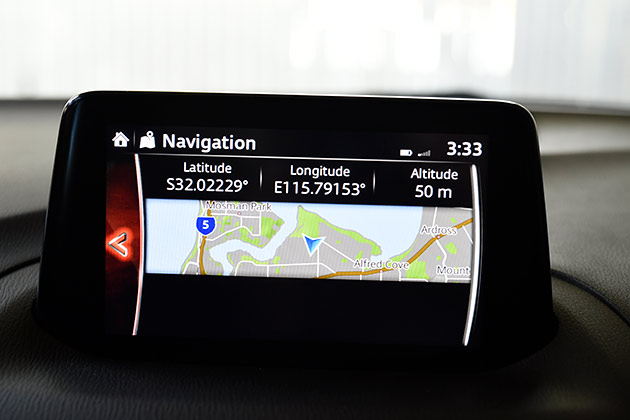Are long road trips bad for your car? It’s a question we get asked a lot.
In general no, they’re not. In fact, taking your car for one long drive can be better for it than making many short trips.
But there are conditions you’ll encounter on a long road trip that you and your car will need to be prepared for.
Driving without stopping for long periods at speeds of up to 110km/h puts very different stresses on a car and its driver. If a car part or system is close to failing before you leave, and it malfunctions while you’re on the road, it may be trickier to get help when you’re far from home. It could also be something that puts you in danger when driving at high speeds.
So if you're heading on a long distance road trip, we’ve put together the checklist below to help you prepare, and ensure you have a safe and enjoyable driving holiday.
1. Pack your car the right way
If you’re carrying a lot of gear, there is a right and a wrong way to get it all in there.
The heaviest items should go in the boot and be placed as far forward and low as possible. In an SUV or four-wheel drive, make sure heavy objects are tied down so they don’t move if you brake suddenly. If you have tie-down points in the cargo area, use them.
When stacking gear on roof racks, don’t overdo it. Making your car top heavy can increase the chance of a rollover in a crash. Large objects also affect the car’s fuel economy due to aerodynamic drag, and there are legal limits to how high and wide you can stack loads that project outside the width, length and height of your car.
RELATED: 10 simple ways to save on fuel

The loads on light passenger cars can only extend 1.2m beyond the front of the car or 1.2m beyond rear of the car (but not both), and 150mm to either side. The overall height of your car, including any load on your roof racks, can’t be greater than 4.3m.
When your car is under a heavier load than normal, it’s handling will change. The extra weight will change the acceleration, how long it takes to stop, and how the vehicle steers around corners. All of this will increase the loading on your brakes, tyres, suspension and engine, so be extra cautious once you hit higher speed roads.
2. Check your car's fluids
Before you leave, check that your car’s fluid levels are topped up. Most importantly, that includes engine oil and coolant. If you run out of engine oil, you run the risk of engine overheating and seizure. So, if your car is not due for a service before you leave, pop the bonnet and have a look.
RELATED: How to do a basic car check
3. Check your wiper blades and fluid
On country roads, in addition to clearing rain from your windscreen, you may need your windscreen wipers to clear dust and bugs from your windscreen, so make sure your wiper blades are in good working order.
If your wipers are squeaking, shuddering or just not clearing water effectively from your windscreen, it’s time to replace them.
Also make sure that the fluid in the windscreen washer reservoir is topped up. You can use water if there’s no other option, but ideally you should use a windscreen washing solution with water.

4. Check your tyres
Driving on bald and/or aging tyres can make it difficult to stop quickly when you need to apply your brakes firmly and may even cause your car to skid out of control. This becomes even more dangerous at high speeds.
In addition, a dangerous build-up of heat can occur in underinflated tyres during a long trip, and if this is combined with damage to the tyre sidewall it could result in a tyre blow out, which can be extremely dangerous.
Before you go, check your tyres have enough tread depth. The legal minimum is 1.5mm but it’s safer to have at least 3mm. Also check for any damage to the tyre sidewalls such as cracks or bulges.
Make sure your tyres are inflated to the correct pressure, including the spare. You’ll find the correct pressures on either the placard inside one of your car doors or your car’s manual. Often front and rear tyres will need different pressures so make note of this when you look for the psi numbers. Plus, if your tyres are more than five years old, it’s time to consider replacing them.

5. Give your car battery a once-over
Before you go, look out for signs that your car battery may be nearing the end of its serviceable life. This can include a clicking or grinding sound when you start the car, finding the engine takes a little longer to fire up after you turn the key, or your headlights being dim when the engine idles but brighter when it’s revved. If you suspect the battery may be getting weaker, consider replacing it before you head off.
6. Check your lights and indicators
Make sure your head lights, brake lights and indicators are all working. If you’re close to needing your next regular car service, get it done before you go. If there’s any particular issue you’re concerned about and you’re an RAC member, you can also take it to an RAC Auto Services centre for a free 30-minute fault diagnosis - just be sure to call and book in advance.
7. If concerned, consider a rental car
A long road trip will naturally result in more wear and tear on your car and add more kilometres to the clock. If you’re worried your car just isn’t up to the task, isn’t big enough to carry all the gear you need or you just don’t want to take your new city car into country conditions, you may want to consider car rental. That way you put wear and tear on someone else’s car and also leave it for someone else to wash, check and service when you’re back.
8. Know your route (and have a back-up plan if tech fails you)
Whether you’re using in-car navigation, a separate GPS system or a mobile phone app to find your way, make sure your device or application does know where it’s taking you before you take off.
Some systems will be spot on, others may not get it right. It helps to get familiar with the whole route on a bigger screen before you leave if it’s somewhere you’ve never been before. Even if you have made the trip before, roads may have changed since the last time you visited. Getting lost a long way from home after a long drive is stressful and not the best way to start your getaway.
Although they’re old fashioned and not as compact as a GPS device or mobile phone, paper maps don’t lose mobile phone coverage and, as long as they’re up to date, can be a great back-up if other systems fail you. And remember that if you’re using an app on a mobile phone, you must always use it hands-free. Ideally, give your front-seat passenger the job of navigating.

9. Prepare for emergencies
Check the condition of roads before you go to make sure there are no road closures, incidents or events that may affect your travel. Main Roads WA has an online travel map which has up-to-date information on road conditions and road closures across the State.
To get connected to help quickly in an emergency, download the Emergency+ smartphone app. This is a national emergency app developed by Australia’s emergency services and will pinpoint your location via your smartphone’s GPS. It also allows you to speak to an emergency operator to provide details of your situation. The app includes other important numbers such as SES and Police.
It’s also recommended you carry a first aid kit when you travel and a good torch with fresh batteries. RAC members get discount on first aid kits from St John WA. And check the level of roadside assistance cover you have to make sure it’s best for trips that are a long way from home.
10. Give yourself regular breaks
Microsleeps, where a driver falls asleep at the wheel for a few seconds, can be fatal and are one of the main causes of fatigue-related crashes where a driver runs off the road.
If you’re heading away, get plenty of rest the night before and if possible, share long road trips with another driver. Also plan to take rest breaks along the way, ideally every one to two hours. Short breaks help you get your body moving and refocus you once you’re back behind the wheel.
Got a car question or need some guidance?
RAC members can call RAC's Motoring Advice line* on 6150 6199 for free car advice.
Last updated: June 2020
